Choosing keywords can easily become an overwhelming and costly part of your content creation and SEO strategies. And that’s why in this post, I’ll lay out a step-by-step strategy you can use to find the best keywords for your website or blog…using only FREE tools.
Each marketer will have his or her own unique process for finding keywords, so if there are other tools or strategies you want to incorporate into this process, please do! This guide is just one way to find popular and relevant keywords; not the only way.
For the purposes of this article, I’ll assume we’re looking for a keyword to target on the home page of a fictitious bakery. However this process can easily be replicated when looking for keyword ideas for blog posts, product pages or virtually any other type of content. The basic step-by-step guide to SEO Key process will look like this:
- Brainstorm
- Choose the most relevant keywords
- Investigate traffic volume and level of competition
- Find synonyms and variations to supplement your content
Step 1: Brainstorm potential keywords.
The first stage – brainstorming – is one of the most important, but is also one many marketers gloss over. Rather than jumping into the keyword research process with one or two keywords or phrases in mind, take some time to compile an exhaustive list of topics or themes related to your business or products. For instance, if I was a professional baker, I may list keywords like ‘baker San Diego’, ‘bakery California’ or ‘best cakes San Diego’. At this point there is no right or wrong; simply get down as many possible keywords as you can think of that are related to your business. Some strategies you can use to brainstorm possible keywords include:
- Industry journals or magazines
- Your own marketing materials
- Asking your sales team or other staff for suggestions
- Checking out which keywords your competitors are using on their sites
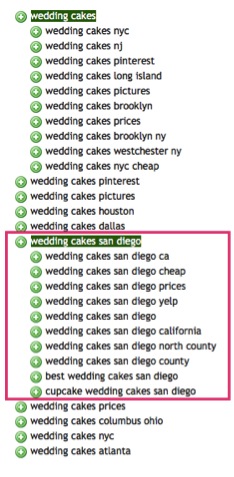
Using the example above, let’s say my bakery specialized in wedding cakes. I type in ‘wedding cake’, and then notice that ‘wedding cakes san diego’ is included in my list. I click on that link to drill down and find even more specific terms I can use:
Remember: At this point you’re only brainstorming. This list won’t give you any indication of how popular a term is, or how difficult it will be to rank for. At this stage, you’re just looking for terms that will be broadly relevant to your business, products or content.
Step 2: Select the Most Relevant Keywords.
Now it’s time to choose the most relevant keywords from your list. Ask yourself: If I was a customer looking for my product (or content), which terms would I be mostly likely to search for? And which ones would be most likely to drive sales? (hint: more specific, ‘long tail’ keywords will often result in higher conversions). After considering all the keywords on my list, I’ve decided to do further research into the following, highly-relevant terms:
- Wedding cake San Diego
- Best wedding cakes San Diego
- Bakery San Diego
- Cakes San Diego
Step 3: Use Google’s AdWords Keyword Planner to Check on Volume and Competition.
Now that I’ve determined that ‘wedding cake San Diego’ is the term I’d like to focus on, it’s time to figure out whether that term is:
a) Worth targeting (i.e. it gets enough monthly searches), and
b) Possible to rank for (i.e. there aren’t a ton of other sites trying to rank for it).
Go to the Google Keyword Planner and sign in or create an account (you must have an AdWords account to access this tool, but signing up is free). For our purposes, choose ‘Search for new keyword and ad group ideas’ once you’re logged in.
On the next page, enter in the keyword or phrase you’re thinking of targeting. In our case, we’re going to try ‘wedding cake San Diego’.
Next, be sure to select the ‘Keyword ideas’ tab, NOT the ‘Ad group ideas’ tab. The Keyword ideas tab will give you two pieces of critical info about your keyword or phrase: the average monthly search volume, and the level of competition.
After plugging in ‘wedding cake San Diego’, I see that while it doesn’t have much competition (“Low”), it only receives around 110 monthly searches. While this may be a good term to include on my site, I likely won’t want to commit to targeting such a low-volume keyword on my home page.
Moving down my list of relevant keywords, I run searches for ‘best wedding cake San Diego’, ‘bakery San Diego’, and ‘cakes San Diego’. This process reveals that the most popular and least competitive of my relevant keywords is ‘bakery San Diego’.
Step 4: Find Keyword Variations and Related Terms to Incorporate Into Your Content.
As Google’s algorithms become more sophisticated, sites that do a thorough job of covering all angles of a topic tend to rank best. This means that each piece of content you produce should include not just one or two main keywords, but many different variations, synonyms and long-tail phrases related to your topic.
One way to brainstorm these related terms is using Google’s Related Search function. Here’s how to do it: Type your chosen keyword into Google Search, and then scroll to the bottom of the page. You should see a section titled ‘Searches related to…..’. These are other words or phrases Google deems relevant to your chosen keywords.
For instance, when I run a Google search for ‘bakery San Diego’, I get related searches like ‘bakery San Diego hillcrest’, ‘bakery San Diego convoy’ and ‘bakery San Diego downtown’. While these phrases likely don’t have enough search volume to justify targeting them as my main keywords, they are phrases I can incorporate into my content to capture related long tail searches.
And there you have it! A Step-by-Step Guide to SEO Keyword Research Using FREE Tools! Using this process, we’ve been able to find one main keyword for our homepage (bakery San Diego), which we know has a decent number of searches and low competition. We’ve also been able to find some related search terms that will help us rank when it comes to long tail search.
Keep in mind that no process or tool is perfect: for instance, the Google Keyword Tool is notorious for underestimating the search volume of a particular term, and only provides results based on exact match type. However, the tool still provides a good, basic foundation for narrowing down your keyword choices.
What free keyword tools do you use for your own keyword research? Share with us below!
About Author
Kim Garst
Kim Garst is a renowned marketing strategist and speaker who is trailblazing the use of artificial intelligence in digital marketing. With over 30 years of experience as an online entrepreneur, Kim helps entrepreneurs grow their business and authority online by using AI technology. She is leading the way with proven AI frameworks that help entrepreneurs build authority in their space.
She is keynote speaker and an international best-selling author of Will The Real You Please Stand Up, Show Up, Be Authentic and Prosper in Social Media.
Named by Forbes as a Top 10 Social Media Power Influencer, Kim is well-known for her skill to simplify complex technology and make the use of AI understandable for business growth. Her relatable, actionable advice helps guide new entrepreneurs to harness the power of AI to succeed in digital marketing. Kim is leading the way in combining human and technological skills to create a new model for AI-powered marketing.


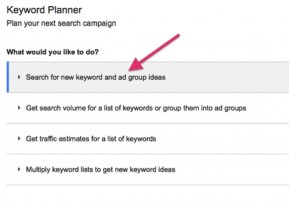
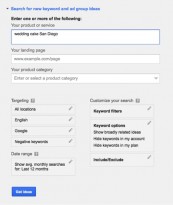
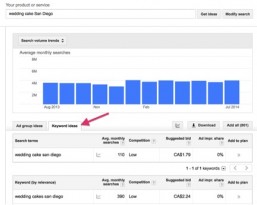
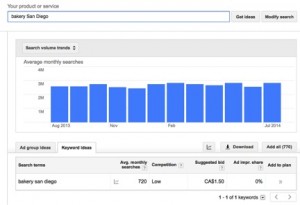
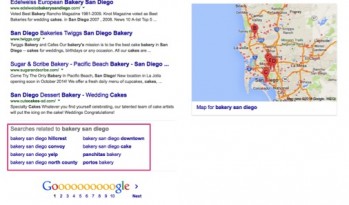

23 thoughts on “A Step-by-Step Guide to SEO Keyword Research Using FREE Tools”
It worked beautifully for me.
Awesome, Susan!
Thanks, Kim. You’ve talk me the basics of Keyword searches in 4 simple steps and in plain English!
I would suggest focusing in on one niche and really trying to build that one first. It’s very hard to build multiple businesses, with such varying areas of interest, simultaneously.
This is GREAT news, Jack!
Glad this was helpful, Shonta 🙂
Thanks Justin!
I would focus on finding keyword phrases that still have decent traffic but low competition and go after them. It’s better to be attracting exactly the right people in smaller numbers than to try to compete for larger numbers and struggle to do so.
oh thanks mam for sharing this…Before reading your article i didn’t know what kind of keyword i should select but when i went through your article my problem has solved…thanks a lot
Glad it was helpful, Roven!
You hit it out of the ballpark again, Kim. Your timing is perfect! The comments were really helpful, as well. Thank you so much for this great article!
Great point, Taposh!
Really good tips covered here. There is no doubt that all of business sites need to think about mobile design and that’s also responsive. Will be sharing with my other team members.
Even I was struggling to login my gmail.But It really helps me out to get into my gmail account. Thank you very much.
Great suggestions. Keyword research and SEO are really so important to starting off on the right foot. You really want to know what phrases to target that not only have enough search traffic, but that also are phrases that you can compete with to attempt to get to the first page of Google results for.
Your guideline is very nice you share the awesome information. It’s a very helpful blog. Keyword research is very important tool and very beneficial. Thanks for posting something worth reading. Great work.
Well worth a read. Got great insights and information from your blog. Thanks.
Great article! Thanks for sharing information..
Hey Kim, Great post. Thanks for the list.
Very useful information for sure, will definitely refer to this while doing a keyword research. Thanks.
Superb content for beginners.Thank you for putting all this information in a proper manner for most people to follow why SEO is important as part of the marketing strategy.
Your guideline is very nice you share awesome information. It’s a very helpful blog. Thanks for posting something worth reading. Great work.
Always a pleasure to share in-depth information. Keep posted.